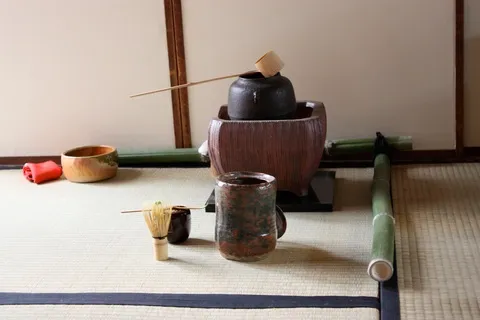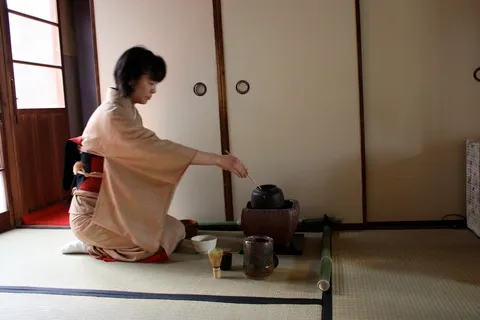
I've always been fascinated with Japanese culture. Sometimes I even feel like I lived at least one past life in that area, because everything seems so familiar and yet, so enticing to me. :)
How I Discovered The "Hot Water For Tea"
After my first exit, between 2009 and 2011, I traveled a lot. It was a form of decompression after 9 years of building my own startup, but also a tool to calibrate my future choices. A few of these trips took me to New Zealand, where, for a few years, I even hoped to become a kiwi citizen (didn't happen, yet).
When you fly from Europe to New Zealand, you basically cut the trip in two big legs. One from Europe to Middle Asia (Bangkok, Hong Kong or Singapore) and one from Middle Asia to Auckland. The legs are pretty much the same length, although, because our skewed perspective on the Earth globe, we think the second leg it's almost half of it. It's not. It's exactly the same: 10 hours of flying.
After a few trips down below, in which I tested Bangkok and Hong Kong as stopovers, I decided to take a leap of faith and try a more distant one: Japan. It was obviously a big stretch, because it added a significant amount of hours, so I decided to extend the staying in Japan for a full week. Since the time of the year was close to Sakura Zensen (the cherry tree flowers holiday) I decided to go for it.
The trip was intense and in many ways shocking. A lot of my preconceptions about Japan were validated and a lot were destroyed. I discovered a fascinating world for which I still long.
I stayed in Tokyo, but decided to go for one night to Kyoto as well, mainly for visiting Gion, of course (the Geisha neighborhood). It proved to be very good decision. Kyoto is very different from Tokyo. Probably because it still keeps the old architecture (Tokyo had to be almost completely rebuilt after WWII). Nevertheless, I keep a very pleasant memory of its large streets and polite people.
And that's how, during this short, but intense visit in Kyoto, I discovered Cha-no-you. This term translates as "the tea ceremony", but it literally means "hot water for tea".
The 4 Principles Of Cha-No-You
The tea ceremony that I attended to was performed by a young Japanese woman, called Akiko.

She was almost speaking English at times, so I got to exchange a few words with her before and after the ceremony. The encounter itself had nothing extraordinary. But the actual ceremony, although simple and unspectacular as well, was something that I deeply enjoyed.
So, without further ado, here are the 4 principles, as they were explained by Akiko:
“The first principle is “Wa”, which means harmony.
The second principle is “Kei”, which means respect.
The third principle is “Sei”, which means purity.
The fourth principle is “Jaku” which means tranquility.
So, a tea ceremony is performed in harmony, by respect of other people, with purified tools in order to purify our lives and in tranquility.
Every time I remember this ceremony and think at these principles, I feel a deep sense of belonging. Especially in the world we live today, filled with unexpected violent events, with misinformation and stress, following these principles, somehow, feels at least therapeutical.
I won't go into many more details about the tea ceremony, because it's a very personal experience and you can read more about the whole thing at my blog, but I do invite you to make room for it in your life. Or at least in your to do list. Just put it there, under the "get a better job this year" task. Or under "exercise more". Just make room for it. To do: "attend to a tea ceremony sometimes".
And if you can't make room for it, at least try to make room for its principles. No need to force them into your life, just meditate on them.
all images from my personal collection
I'm a serial entrepreneur, blogger and ultrarunner. You can find me mainly on my blog at Dragos Roua where I write about productivity, business, relationships and running. Here on Steemit you may stay updated by following me @dragosroua.

https://steemit.com/~witnesses